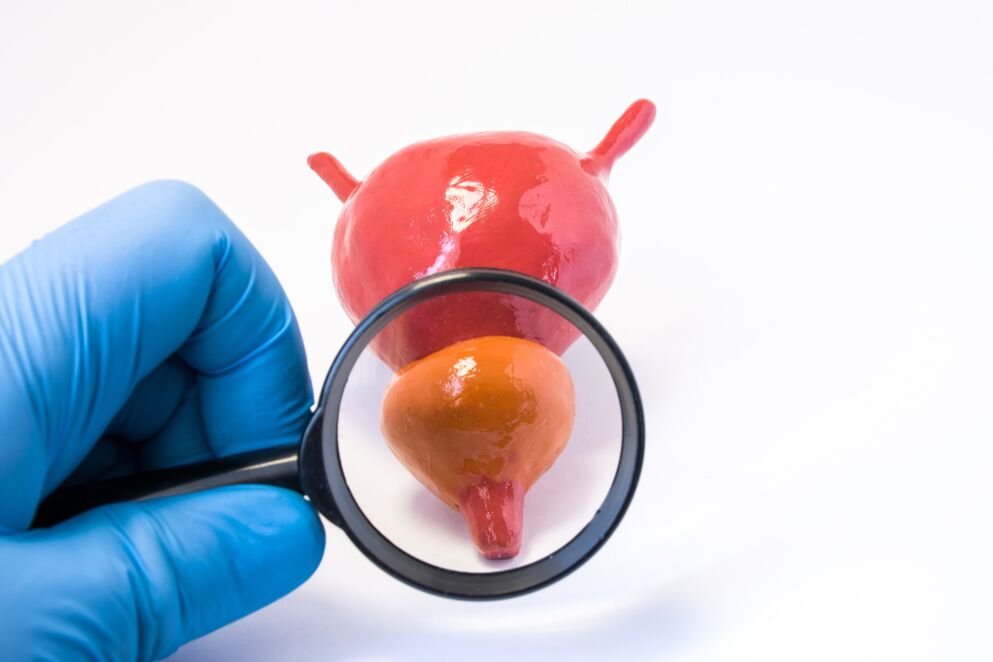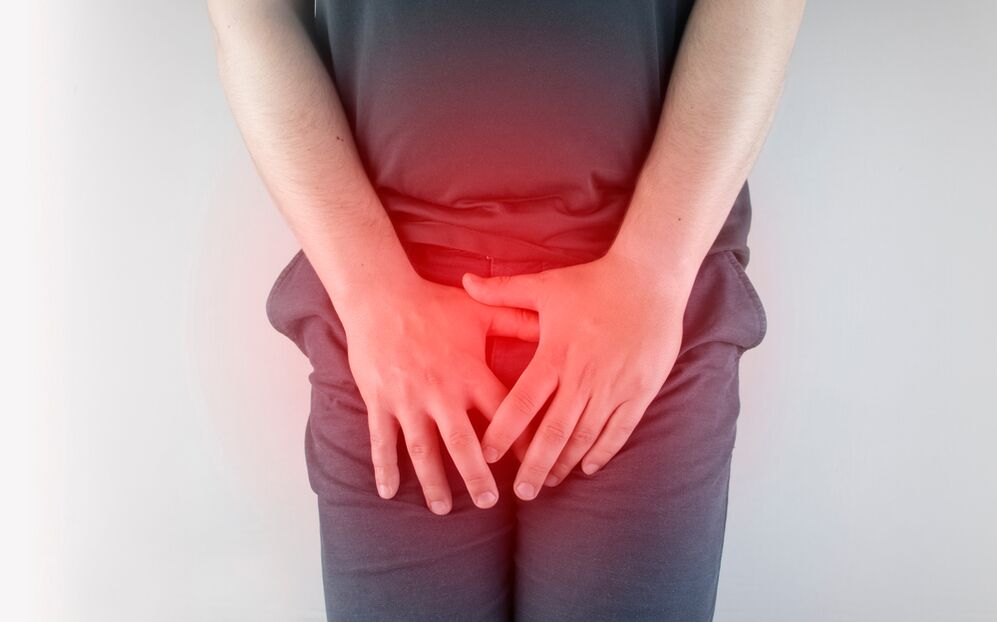The prostate is a small, unpaired organ located in the pelvic cavity just below the bladder and in front of the rectum. The urethra passes through the thickness of the prostate gland.

Structure and function of the prostate gland
The prostate gland is composed of smooth muscle fibers and secretory cells. The main function of the gland is to secrete secretions, participate in the liquefaction of ejaculate, ensure the movement of sperm and protect them from the aggressive environment of the vagina. The prostate gland is also a valve that prevents the flow of urine during ejaculation and semen during urination.
The prostate weight of a healthy adult man is only about 20 g. The hormones of the pituitary and adrenal glands, androgens, and estrogens have a great influence on its condition. Throughout life, the size of the prostate gland can change: in boys it is small, during puberty the prostate gland increases suddenly. When hormone secretion begins to taper (usually occurs between the ages of 45-50), reverse growth of the gland usually begins.
However, the opposite process often occurs - benign prostatic hyperplasia (BPH), or prostate tumor.
What is prostate cancer?

This disease has many synonyms: prostatic tumor, benign prostatic hyperplasia, benign prostatic hypertrophy and others.
The name reflects the essence of the pathological processes occurring in the gland: glandular tissue grows, forming dense nodules. The enlarged prostate puts pressure on the urethra and constricts smooth muscle cells. This leads to the appearance of symptoms of the disease.
The size of the prostate has no direct effect on the decline in urinary capacity. Symptoms may be absent with a significant increase or present in the early stages of the disease.
BPH has a benign growth, i. e. it does not metastasize. This essentially helps distinguish BPH from prostate cancer. The primary reference point for the initiation of malignant transformation of the prostate is the level of prostate-specific antigen (PSA).
Causes of brown planthoppers
Statistically, in men under the age of 30, signs of BPH are often absent. With age, the incidence of BPH increases, reaching a peak in the ninth decade of life (90%).
The cause of prostate cancer is still not fully understood. It is believed that prostate tumors are multifactorial in nature. The role of the male sex hormone testosterone has long been known both in the normal development of the prostate gland and the development of BPH. It is known that men from 40 to 50 years old are the period when the hormonal regulation is most profound, and there is a decrease in the concentration of circulating testosterone in the blood. The decrease in testosterone and the relative increase in the level of estrogen (female sex hormone) in the male body leads to the growth of the prostate gland.
The change in the ratio of hormones in the male body is a starting point in studying the causes and development mechanisms of prostate cancer. In addition to hormonal disturbances, the inflammatory process, accompanied by prostate edema, is important in the development of prostate adenoma, as it can play an important role in increasing the number of glandular cells. prostate, and visceral edema, as a mechanical factor, contribute to the intensification of the symptoms of the disease.
Symptoms of Prostate Cancer

Enlargement of the prostate gland leads to compression of the urethra and causes smooth muscle spasms. This process is accompanied by difficulty urinating:
- the need to wake up at night to empty the bladder;
- reduce the strain of the urine stream;
- feeling of emptying of the bladder after urinating;
- the appearance of difficulty controlling the urge to urinate;
- increased urination during the day;
- urinating small amounts.
Usually, the above symptoms are accompanied by difficulty initiating the act of urinating, which is more evident in the morning and causes you to strain to start urinating. These symptoms are reason to seek medical attention.
Prostate tumor treatment
The course of the disease significantly worsens quality of life, and if not adequately treated, may require surgery. Given the progressive nature of this disease, drug treatment of BPH should be carried out over a long period of time. Depending on how common your symptoms are, therapy can vary significantly. Pharmaceutical therapy eliminates urinary problems, reduces complaints and restores quality of life. You should also be aware that prostate tumors can be asymptomatic or cause nonspecific urinary problems that do not resemble the classic picture of the disease. This misleads patients and causes them to waste valuable time. But the earlier the treatment, the more effective it is.
Preventing brown planthoppers
There is currently no specific method of prevention. One of the preventive measures is to see a urologist every year after 40 years. At the appointment, the doctor will be able to assess the symptoms, conduct the necessary tests, and prescribe effective treatment.




































